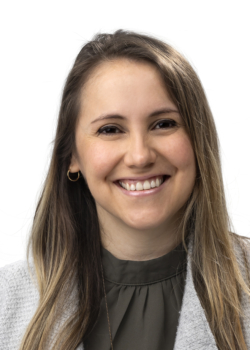For this feature, we ask our female PIs three questions – about the SFB, their career, their balancing of work and private life, gender issues in general etc.
Did you ever consider leaving academia and what made you stay on?
Yes, I have! Especially during moments of uncertainty or frustration, which I believe is quite common among junior scientists. Seeing former colleagues in industry with a better work-life balance, higher salaries, and greater job stability does make one reflect. However, what keeps me in academia is the joy of discovery and the intellectual freedom that academia offers, which are really priceless. I am also constantly inspired by the chance to learn and collaborate with brilliant scientists, and mentor the next generation of them. But most importantly, knowing that my work can directly impact patient´s lives gives deep meaning to what I do and encourage me to stay.
Were you ever hampered because you are a woman?
Yes, there have been times when I’ve felt underestimated or overlooked in scientific discussions or decision-making processes, both as a woman and as a Colombian. These moments are often subtle, but they can accumulate and affect self-confidence and career progression. That is why it is essential to be part of a community that offers a safe and supportive space, where everyone can fully develop their potential, and I believe the SFB 1381 is such a place. However, in general, we must continue creating and strengthening those spaces in academia, especially for early-career female researchers, who are often most vulnerable. Unfortunately, inappropriate comments, exclusion from opportunities, and, in some cases, abuse of power still occur far too often. Institutions must acknowledge these issues and take meaningful steps to address them, like establishing clear and trusted reporting mechanisms, where young women feel safe to speak up without fear or retaliation.
What recommendations do you have for young male researchers to improve gender equality?
I would recommend to start by listening actively and with an open mind to the experiences of your female colleagues. Reflect on unconscious biases, we all have them, and challenge them when you see them in action. Speak up when you witness unfair treatment. For example, if a female colleague is being interrupted or overlooked during your lab meeting, call it out. At more senior levels, share administrative responsibilities, which often fall disproportionately on women, and advocate for transparent hiring and promotion processes. These could be small first daily steps towards a change. True equality requires consistent effort from everyone.

Laura Gámez-Díaz studied Microbiology in Colombia and completed her Master´s degree in Biology through a joint program between Colombia and Canada, before pursuing a PhD in Freiburg. Following her Postdoctoral training in Freiburg and New York, Laura was appointed as Junior Group Leader at the Center for Chronic Immunodeficiency at the University Medical Center Freiburg. Her research focuses on the molecular mechanisms of immune dysregulation, particularly in LRBA deficiency. During the first funding period of our SFB 1381, Laura was awarded with the SFB 1381 Young Investigator Grant, and she is currently co-leading project B10.









